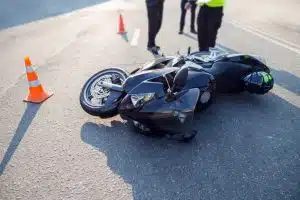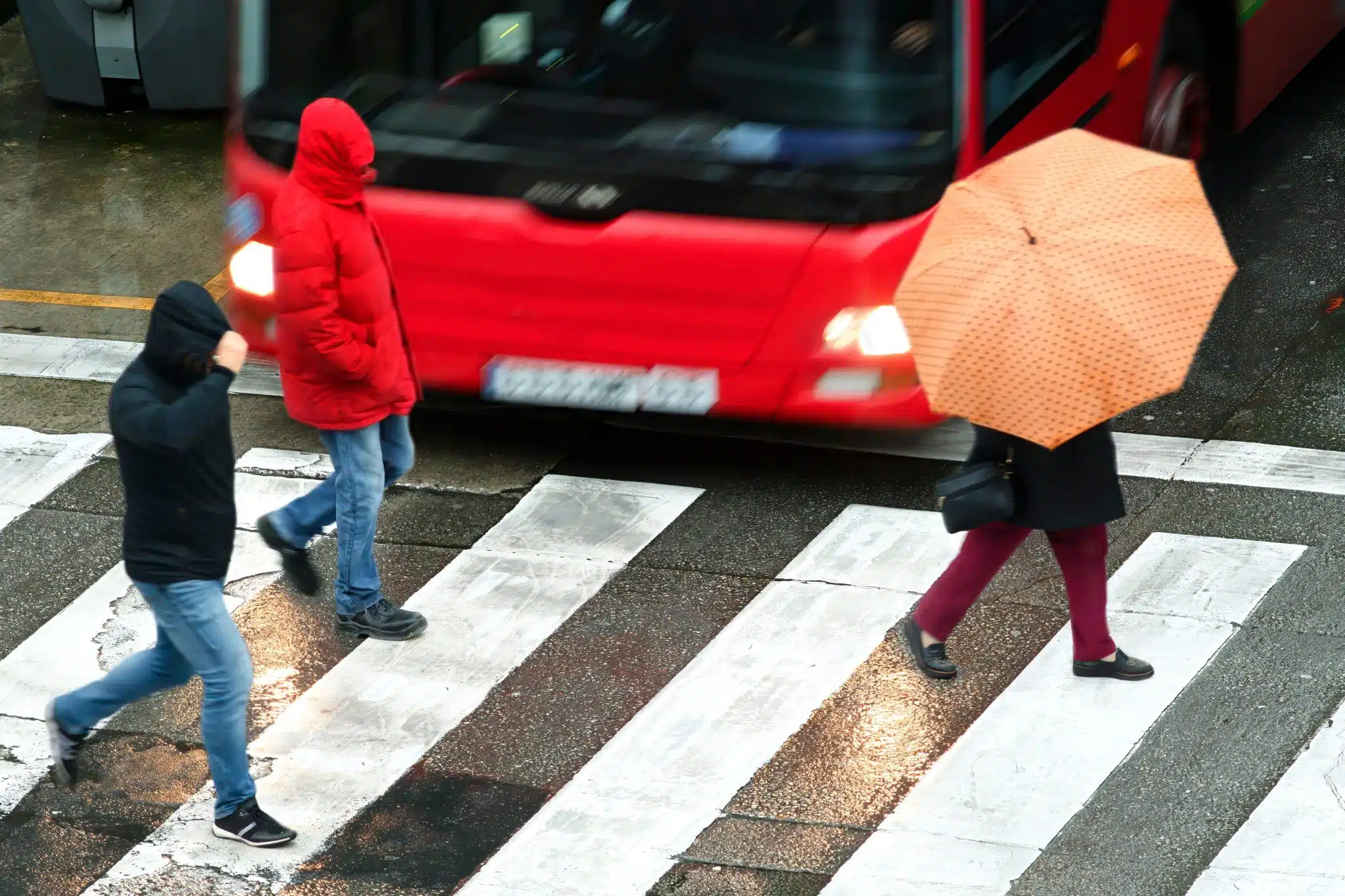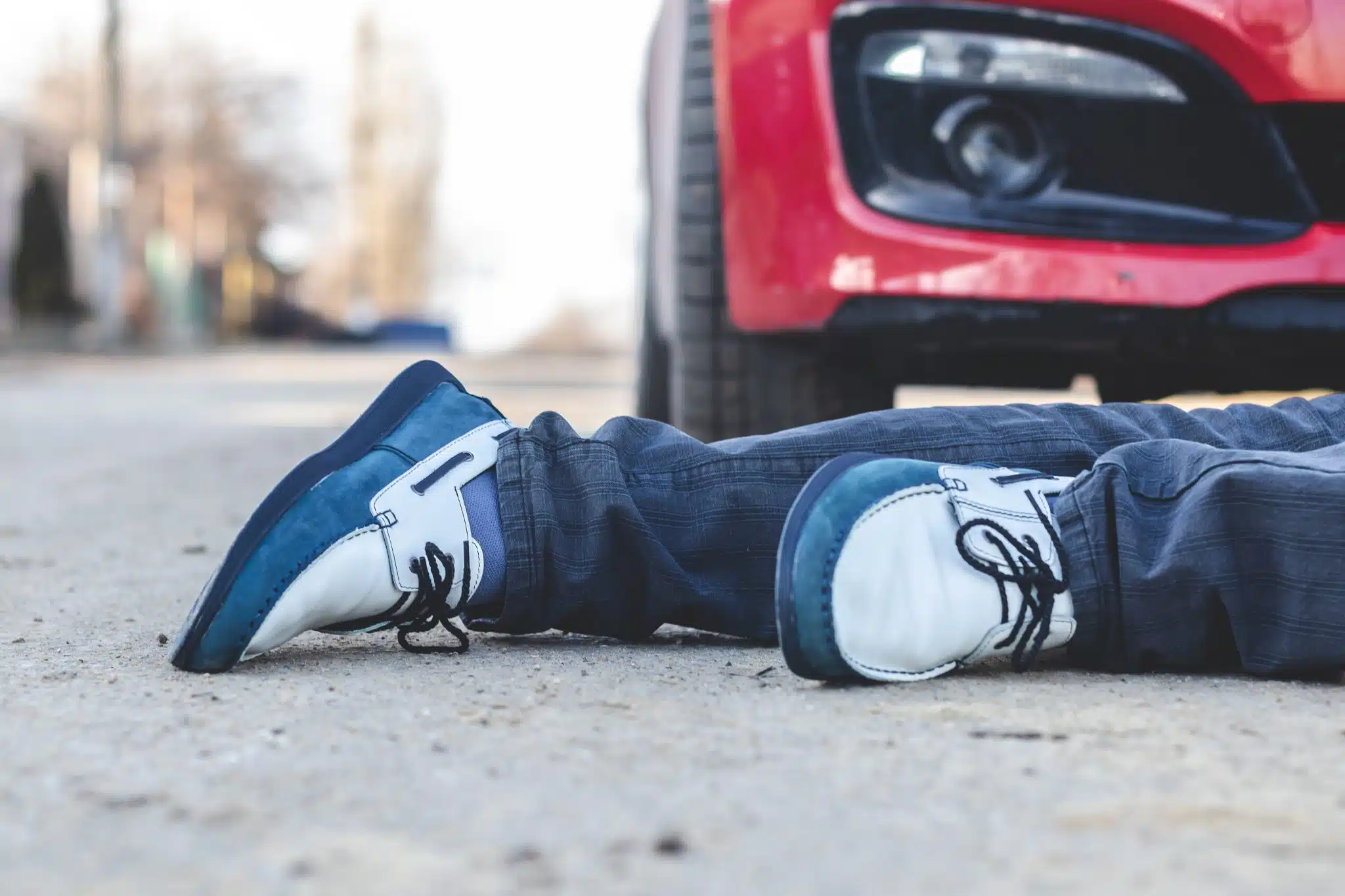
If you ride a motorcycle, you’re more than likely aware that it offers a vastly different experience from driving a car. It can be tough at times because motorcycles are smaller and often harder for other drivers to see, which can increase the chances of an accident.
Below, we’ll talk about some common reasons why motorcycle accidents happen as well as steps to take if you or a loved one has been in a collision. Take care, and know that you’re not alone during this time. Contact an experienced motorcycle accident lawyer as soon as possible.
5 Common Causes of Motorcycle Accidents
1. Lane Switching
Lane switching is one of the most hazardous situations motorcyclists face on the road. When a vehicle changes lanes, especially without properly checking blind spots, it creates a serious risk of sideswiping or cutting off a motorcycle that may have been riding in the intended lane.
The primary reason lane switching is so perilous for riders is the tendency of other drivers to inadequately check for motorcycles before moving over. Motorcycles are relatively small and can easily be obscured in a vehicle’s blind spots or missed in a quick mirror check. Their slender profile makes them harder to see from the front or rear as well.
Motorcycles can also accelerate faster, allowing them to quickly close distances the driver may not anticipate. Distracted driving further exacerbates the lane switching hazard. Drivers talking on phones, fiddling with radios/navigation, or generally not paying full attention are far more likely to make an unsafe lane change without properly scanning for motorcycles.
2. Sudden Stops
Sudden stops on highways present a significant hazard for all motorists, but they pose an even greater risk for motorcycle riders due to their lack of physical protection and the dynamics of operating a two-wheeled vehicle.
When a car or truck needs to brake abruptly, the driver is secured by seat belts and surrounded by a rigid metal frame, which helps mitigate the forces of deceleration. However, for a motorcyclist, a sudden stop can have devastating consequences.
Unlike their enclosed counterparts, motorcyclists are exposed to the full force of an abrupt halt, which can potentially eject them from the seat and send them hurtling toward the ground or other vehicles.
Even if they manage to remain on the bike, the sudden weight transfer and potential lockup of the wheels can cause the motorcycle to slide or wobble uncontrollably, increasing the risk of a crash or loss of control.
Moreover, the lack of protection afforded by a motorcycle’s design means that any impact or collision, even at low speeds, can result in severe injuries or fatalities for the rider.
The potential for being struck by other vehicles or sliding into obstacles on the road is much higher for a motorcyclist who has been thrown from their bike during a sudden stop.
3. Left Turning Cars
Left-turning cars pose one of the most significant threats to motorcycle riders, accounting for nearly half of all motorcycle-car collisions. This danger arises from two primary factors: driver inattention and misjudgment.
Driver inattention plays a major role in these accidents. Due to the smaller size and profile of motorcycles, drivers may fail to notice them, especially when focused on scanning for larger vehicles.
This lack of awareness can lead to drivers turning left directly into the path of an oncoming motorcycle, resulting in a devastating collision.
Additionally, even attentive drivers can misjudge the speed and distance of an approaching motorcycle, leading them to turn left when they believe they have a safe gap.
This misjudgment can be exacerbated by the fact that motorcycles can accelerate and close distances faster than larger vehicles, catching drivers off guard.
4. A Car Rear Ends You
Being rear-ended while riding a motorcycle may seem like a relatively minor incident, but it can have catastrophic consequences for the rider.
Unlike a car, which is designed with crumple zones and other safety features to absorb the impact of a rear-end collision, a motorcycle offers minimal protection to its rider.
When a car rear-ends a motorcycle, even at low speeds, the force of the impact can cause the rider to be violently thrown from the bike. Without the protective shell of a vehicle surrounding them, the rider becomes extremely vulnerable to serious injuries or even death upon hitting the ground or being struck by the car or other objects.
The lack of a crumple zone or other energy-absorbing mechanisms on a motorcycle means that the full force of the collision is transferred directly to the rider’s body. This can result in severe trauma, such as spinal cord injuries, traumatic brain injuries, or multiple fractures, even in seemingly minor rear-end collisions.
5. Head-On Collisions
Head-on collisions between motorcycles and other vehicles are among the most devastating and often deadly types of accidents for riders. Alarmingly, a staggering 56% of motorcycle fatalities involve collisions with other vehicles, and head-on crashes account for a significant portion of these tragic incidents.
The reason why head-on collisions are so perilous for motorcyclists is the lack of protection afforded by their vehicles.
Unlike cars or trucks, which have rigid frames, crumple zones, and other safety features designed to absorb and distribute the force of a frontal impact, motorcycles offer virtually no such protection.
In a head-on collision, the rider is exposed to the full force of the impact, increasing the likelihood of severe injuries or fatalities. The rider’s body may strike the other vehicle, the ground, or their own motorcycle, potentially sustaining traumatic brain injuries, spinal cord injuries, or multiple fractures.
Motorcycle Accident Injuries You Can Include in a Claim
A motorcycle accident can go from a joyride to a life-altering event in a split second. Serious injuries can leave you with physical, emotional, and financial burdens. If you’ve been injured in a motorcycle accident, you may be entitled to compensation for these damages.
Here are some common injuries associated with motorcycle accidents:
- Traumatic Brain Injury (TBI): TBIs can cause a wide range of problems, from headaches and memory issues to difficulty concentrating and even personality changes. The severity of a TBI can vary greatly, but all can significantly impact your daily life.
- Spinal Cord Injury: Spinal cord injuries are devastating and can result in partial or complete paralysis, affecting mobility, bladder and bowel control, and other bodily functions.
- Broken Bones: Motorcycle accidents often cause fractures, particularly in the legs and pelvis. These injuries can require extensive medical care and rehabilitation, limiting your mobility and ability to work.
- Road Rash: The asphalt can act like sandpaper during a motorcycle accident, causing excruciating abrasions (road rash). These injuries are not only painful but also carry a high risk of infection.
If you’ve suffered any of these injuries due to a motorcycle accident, consider seeking legal counsel to understand your options for compensation.
Types of Damages in a Motorcycle Accident
Damages available in a motorcycle accident include:
- Medical Costs: This covers everything from ambulance rides and emergency care to hospital stays, scans, surgeries, physical therapy, and future medical needs.
- Lost Wages: If you miss work due to your injuries, you can recover compensation for the income you lose.
- Reduced Earning Capacity: Serious injuries can sometimes limit your ability to work the way you used to. This category compensates for the future income you may no longer be able to earn.
- Pain and Suffering: This covers the physical and emotional pain you experience because of the accident.
- Property Damage: The repair or replacement cost of the damaged motorcycle and gear like helmet, jacket, etc. may be recovered.
- Punitive Damages: If the defendant’s actions were found to be grossly negligent or intentional, punitive damages aimed at punishing and deterring such future conduct may be awarded in some cases.
Have an experienced motorcycle accident attorney properly evaluate and pursue full compensation for the short and long-term damages. Insurance companies typically try to minimize payouts, so skilled legal representation is invaluable for protecting the victim’s rights.
How Long Do I Have to File a Motorcycle Accident Claim?
Determining the appropriate statute of limitations and filing a motorcycle accident claim in a timely manner is crucial to protecting your right to compensation. The statute of limitations sets a strict time limit for bringing a legal claim after an incident occurs. For motorcycle accidents, this usually means the deadline for filing a personal injury and/or property damage lawsuit against the at-fault party.
The length of time varies from state to state, but common time frames are:
- Personal Injury Claims: two to three years from the accident date in most states
- Property Damage Claims: three to six years typically, sometimes aligned with the personal injury statute
However, exceptions and nuances may involve factors like:
- If the accident resulted in a fatality, a different wrongful death statute may apply
- Whether the claim involves a government entity, which often has shorter notification periods
- If the injured party was a minor at the time, the limitations period may extend or toll
- If the injuries were not immediately discoverable, the clock may start from the date of discovery
Missing the statutory filing deadline can be extremely detrimental. Most claims will be permanently time-barred and the opportunity to recover damages lost entirely.
Even if the statutory deadline seems distant, act quickly.
More time provides a greater opportunity to properly investigate, gather evidence, and build a strong case before the clock runs out. The consequences of a missed filing period are too substantial to risk delaying.
Why Hire an Attorney After a Motorcycle Accident?
Having legal representation allows you to focus on your recovery and well-being rather than dealing with the complexities and stress of a legal claim while injured.
An attorney levels the playing field against insurance companies and ensures your rights are fully protected after a motorcycle accident. The sooner representation is secured, the better to begin building your case in a timely manner.
If you wish to discuss your situation with an experienced personal injury lawyer, don’t hesitate to contact Rothenberg Law Firm LLP for your complimentary consultation.






